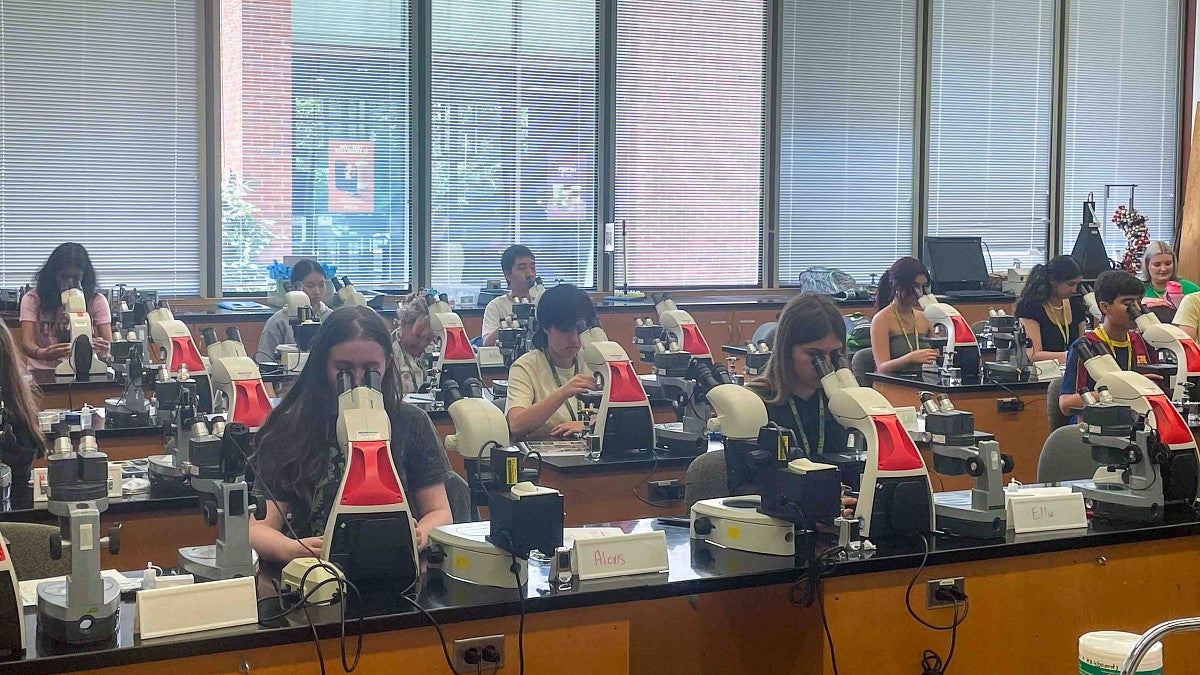
September 9, 2024 - 12:00pm
The University of Oregon buzzed with energy this summer as local high school students flocked to campus for the Summer Academy to Inspire Learning (SAIL) program.
For one week, students immersed themselves in the Duck life, gaining firsthand experience of university life and the academic opportunities available within the College of Arts and Sciences.
SAIL is an immersive pre-college experience that encourages historically underrepresented high school students to pursue higher education. The program offers free residential and day camps to Oregon high school students, along with specialized UO scholarship opportunities and high school credit for participants.
This year, students had the opportunity to participate in a variety of programs offered by CAS. The learning opportunities ranged from exploring the sociology of mental health with the linguistics and sociology departments to using chromatography to solve crime with the Department of Chemistry. Through experiential learning activities, students had the opportunity to dive deeper into their existing interests—or discover new passions.
“It’s a pleasure to interact with these students,” said Andy Karduna, professor and head of the Department of Human Physiology. “They always have fascinating questions—about the science we cover or college in general.”
The human physiology and physics departments have collaborated for more than a decade to create interactive and innovative SAIL programs. In this program, students toured the undergraduate anatomy lab that houses human cadavers, explored electrical measurements, learned about 3D printing, and experienced the physics of rock climbing.
“Students realize that there are connections between fields,” said Raghu Parthasarathy, a physics professor. “Studying either of them in college can be an even broader and more rewarding path than they may have thought.”
The computer science program was also a big hit for students, with camp sessions offering engaging, hands-on experiences in which participants explored 3D modeling and other software programs.
“I enjoy seeing the smiles and satisfaction as they learn that they, too, can program or understand what might seem like difficult computer science topics,” said Phil Colbert, a computer science instructor.
SAIL also offers year-round programs for high school students, including student mentorship programs and specialized outreach events.
—By Bailey Meyers, College of Arts and Sciences
